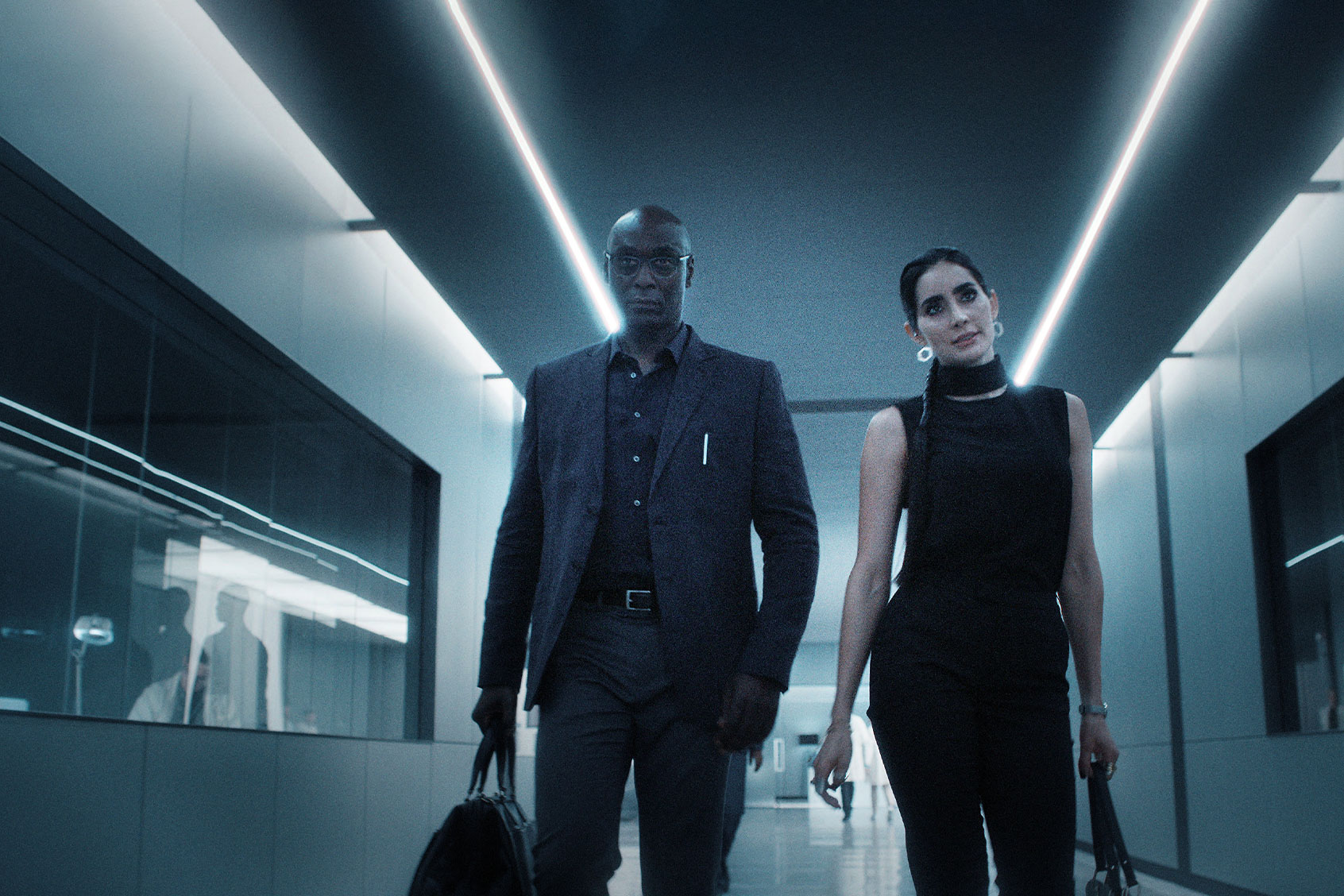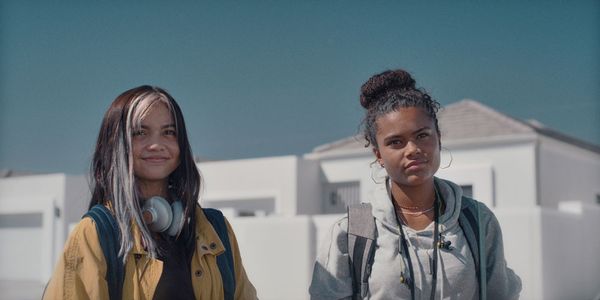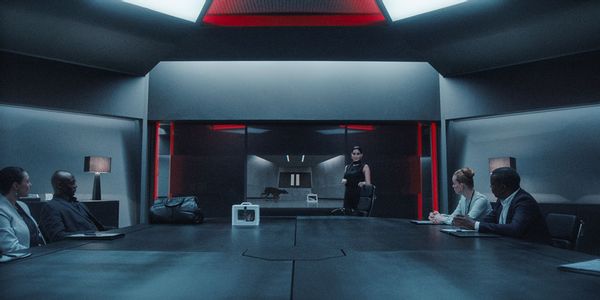
When one of my previous employers posted the redesign plans for our workplace, among the highlighted enticements were upgraded employee lounges. Most offices have such designated casual spots, but these were designed to be as comfortable as a living room, our home away from home.
Many of my co-workers marveled at the sketches, but I recall them making me queasy. To someone already expected to take work home and log in over weekends, this wasn't a comfort. It represented another tightening of the noose. It said to me, "Don't go home. Think of the workplace an extension of home.
Zombies may still be America's favorite monsters, as proven yet again by the popularity of Netflix's "Resident Evil" series. But our nightmares tend to be fueled by ordinary horrors like the one described above. Americans may be worried about a recession but not enough to stop record numbers of us from quitting jobs we don't like or planning to quit.
RELATED: In "Severance" a sham work/life balance cuts the same when the body keeps the score
Often these resignations are related to a company's refusal to accommodate their employees' desire to work from home or respect the boundaries they impose between their work and personal lives. More of us are emphasizing work that helps us live instead of living to work.
And this is the single aspect of the series interpretation of Capcom's survival shooter franchise that bestows it with a grander, more intelligent purpose than the films that preceded it.
"Resident Evil" is a franchise born during Generation X's and Millennials' shared heydays, with the former at an age to buy the game for themselves and the latter requesting it from their parents. Its mythology also reflects the overall feeling of those cohorts, who shared a general sense of government and corporate distrust counter to the governing notions of Boomers and Silents.
Flesh-eating lunatics aside, the show's alternate version of 2022 seems only a few hairs away from our reality.
You don't have to have ever played "Resident Evil" to understand the global threat posed by its supervillain, the Umbrella Corporation. A quick review for those who aren't familiar with the franchise: Umbrella is a pharmaceutical company specializing in top secret weapons research, mainly involving biological mutagens. The one that ends it all is the T-Virus, a highly contagious pathogen that turns most humans into aggressive zombies.
It flips the same buttons that made "The X-Files" a phenomenon, acknowledging that some of the creepiest forces in existence are man-made, created for the sake of profit and power.
While the games and movies are mainly devoted to characters led by Alice surviving these hordes, the show is divided between the world of 2022, when everything fell apart, and the future described above. Flesh-eating lunatics aside, the show's alternate version of 2022 contains seeds of a more unsettling story because it seems only a few hairs away from our reality.

That part of the story follows a pair of teenagers, Billie (Siena Agudong) and Jade (Tamara Smart) as they relocate with their father Albert Wesker (a legacy character from the games and films, played by Lance Reddick) to Umbrella's South African's company town, New Racoon City. (The original Racoon City, where the film franchise and video games began, was wiped off the map.)
New Raccoon city is sterile in every way. All the houses in their subdivision are chalk white. The school is a palette of white and grey, and its students dress to match.
Between this idea and its vision of corporate life and living, "Resident Evil" shares a similar type of unnerving premise as the ones at play in "Severance," in which Lumon Industries designs a way to divide consciousness between one's work existence and one's personal time, monitoring its employees by setting them up to be neighbors in the same community.
Lumon's mystery is that nobody knows exactly what it does, including its employees, who only know each other at work and through work, because they have no recollection of life outside of work. Inside the office, productivity is rewarded with odd treats like an egg bar or dance breaks, where employees can choose a type of music and a small instrument to play with, as seen in the episode "Defiant Jazz."
That's very different from what "Resident Evil" presents in that Lumon appears to offer incentives to its employees beyond merely staying alive. It's not far off from what we see at play in the current season of "Westworld," where Evan Rachel Wood's character is tracked in her off-hours by her employer when she calls in sick – you know, just to see if she's telling them the truth.
Between these shows and the world portrayed in "The Boys," where Vought International has inserted itself in every corner of American life, this is a chance from popular depictions of work that have reigned for decades, mainly viewing cubicle life through the lens of the workplace comedy.
But here office life doesn't tend to be fun or familiar, but psychologically draining. Digging into the cutthroat corporate culture of Umbrella, "Resident Evil" showrunner Andrew Dabb draws parallels to the inhumane corruption of the Sackler's and Purdue Pharma.
As a news report explains, the company's pivot from bioweapons to direct-to-consumer drugs via its antidepressant, anti-anxiety medication Joy is meant to change its fortunes. A side-effect of Joy that isn't spoken about beyond the company's board room is the drug's ability to condition the mind to be harnessed, influencing behavior and attention. Our social media apps do precisely that without drugs. This would conquer that natural addictiveness and, predictably, it is created from a derivative of the T-virus. This is a company that refuses to say die to its worst discoveries, but is perfectly fine if consumers drop dead.

This is as ridiculous as the zombie arm of the series, which causes the plot to fall into chaos in the second half of the season. Then again it enables Reddick, who is always one of the best parts of the shows he's a part of, to enjoy the type of dramatic athletics actors love to engage in, especially these days.
Working to exhaustion, pledging loyalty to a company or industry, sacrificing family time for their job, little to none of it is an acceptable price for success.
It also acknowledges the franchise's need to reestablish itself with Gen Z by appealing to that age group's general distrust of systems, mainly those imposed by corporations, government, and other institutions.
To them, the undead probably represent less of a threat than the corporate educational system that heavily censors internet access and controls what they learn about everything – including viruses. Poll after poll shows that Billie and Jade's contemporaries have no interest in business as usual when it comes to their work life: working to exhaustion, pledging loyalty to a company or industry, sacrificing family time for their job, little to none of it is an acceptable price for success.
To be clear "Resident Evil" is not a good show by any means. None of the many films based on those video games are. And yet somehow, I have seen every one of them and genuinely enjoyed a couple.
The franchise has been alive and sprinting in some form since 1996 because of people like me who played the video games or, starting in 2002, enjoyed watching Paul W.S. Anderson's delirious action showcases for his wife Milla Jovovich, the franchise's enhanced hero Alice.
We're living in a world where most of us have given up on "The Walking Dead," leaving little to no good reason to build eight episodes of "Resident Evil" expressly around its survival horror, although that's precisely what the show is in its futuristic 2036. However, one terror central to the game's mythology that's more relatable than its rehash of an apocalypse-by-pustule-covered-cannibals is its interpretation of the all-consuming corporate matrix.
And it is through Billie's brief spate of being bullied by another student that we witness how the social structure works.
Since Albert is higher up in the Umbrella Corporation than the father of the girl who tortures him, he simply shows up at the principal's office and threatens to destroy the man's life down to the studs.
The father of the bully has to comply with Albert's wishes, not because his bullying kid was wrong – clearly, she was – but because he knows where he sits in the social order imposed by Umbrella. Office politics is life politics in this social food chain – which, miserably, tends to be the case in many industries.
Want a daily wrap-up of all the news and commentary Salon has to offer? Subscribe to our morning newsletter, Crash Course.
There's a reason "The Office" remains wildly popular among Millennials and Gen Z: it makes even the most soul-sucking work situations seem fun and lovable owing to the familial bond shared by the team at the Scranton, PA. branch of Dunder Mifflin Paper Company. It shows a group of people brought together by managerial hiring who enjoy being around each other and generally care about each other's well-being.
New Raccoon City and its corporate housing communities take work life to another extreme, reflecting an existence like the one many workers endure in exchange for a regular paycheck, 401K, and health insurance – which is to say, the understanding that you are being monitored and could be culled for any reason.
That surveillance doesn't merely take place in the same offices that hold secret labs with infectious, chomping dog – cameras are installed throughout the Weskers' home, for safety and to ensure nobody is stepping out of line. To this corporation, home is an extension of work. Depending on your frame of mind, there's more to fear in that picture than the thought of being overrun by the undead.
"Resident Evil" is currently streaming on Netflix.
More stories like this:







